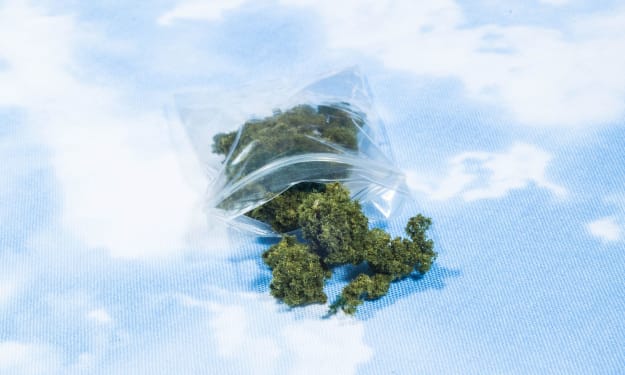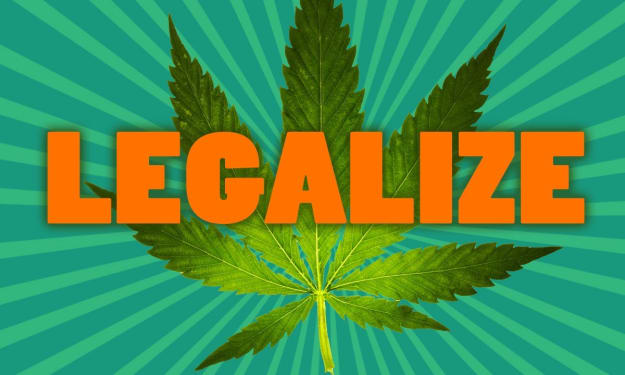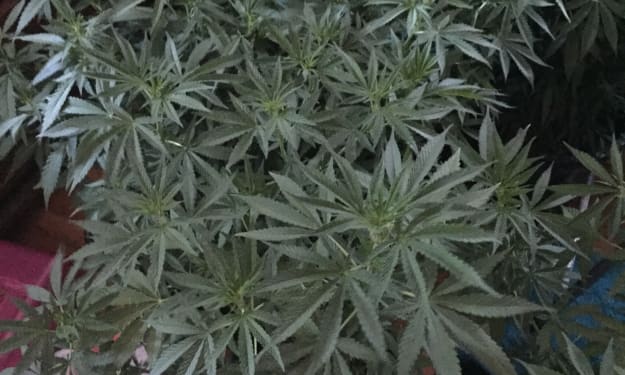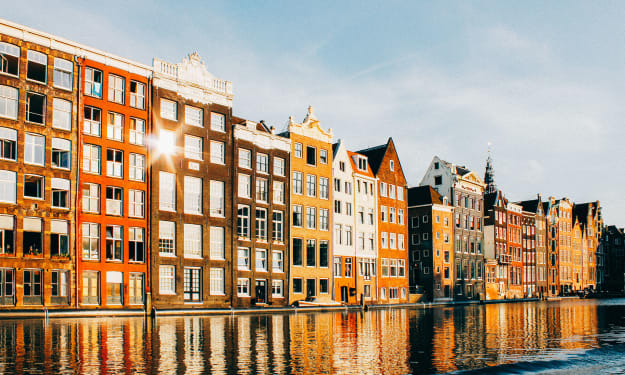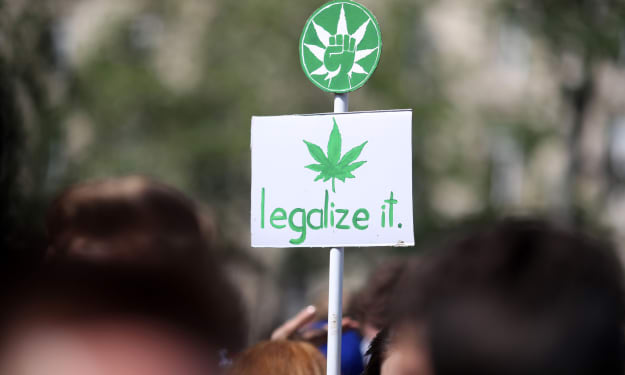politics
The most popular debate since prohibition, weed politics explore the trials, tribulations, and success stories of the pot industry.


No, Jeff Sessions, Marijuana is Not as Bad as Heroin
While many statesmen and philanthropists struggle to defeat the rising problem of heroin addiction in America, United States Attorney General Jeff Sessions showed how out of touch he is with reality by opening his mouth.
Anthony GramugliaPublished 7 years ago in Potent

Studies That Show How Messed Up Public Opinion Of Cannabis Really Is
Newspaper headlines recently pointed out that the support for marijuana legalization has never been higher. As of now, 58 percent of all Americans believe that marijuana should be legalized. To give you an idea of what a big change that is, it's worth saying that in 1969, 84 percent of Americans believed marijuana should stay illegal.
Skunk UzekiPublished 7 years ago in Potent

Let's Legalize Marijuana
I first heard about marijuana in middle school. I had seen pictures of the plant on the binder of one of my classmates. Then a student named Ben did a report on it. I remembered him presenting pictures of marijuana and giving a speech talking about how users said the drug made them feel happy, but the drug was always a mystery because I had never tried it.
Alexander LaForgiaPublished 7 years ago in Potent

How To Help Legalize Pot In Your Area
Right now, all the progress that has been made on legalizing medical marijuana is in jeopardy. President Trump and many members of the Republican party have promised to double their efforts in pursuing people who smoke weed with criminal charges and stifle any attempts at national scale legalization as part of the party platform.
Skunk UzekiPublished 7 years ago in Potent

Taxing the Toke
The old adage “Nothing is certain but death and taxes,” is accredited to the American wise man, Benjamin Franklin. Used in a letter penned over 225 years ago, this is still true today. Death has already been considered, briefly, but today’s post will focus on the other of life’s certainties – taxes. Although there is a current trend of legalization that is quickly becoming a national consensus regarding the way marijuana should be treated legally, a key point of contention between marijuana industry entrepreneurs and government officials are the tax codes on state and federal levels that impose harsh penalties and disincentives toward investment into cannabis capitalism.
Daniel RouleauPublished 7 years ago in Potent

Olympians Who Support Weed
While states in the US are legalizing marijuana use, it still retains its illegality in many countries and in many states in the US. This, however, hasn’t stopped plenty of Olympic athletes from speaking out and stating that they support weed. It turns out, everyone who smokes weed doesn’t end up couch locked in front of a bowl of Doritos, just like everyone who drinks a beer doesn’t end up in the drunk tank.
Wendy WeedlerPublished 7 years ago in Potent

Cannabis and Native Americans
Native Americans have always respected and used “teaching plants.” By far the most commonly used and most beneficial plant is cannabis or marijuana. Whether it was smoked or eaten, its use has been verified around the world and dates back to the beginning of man himself.
Hyapatia LeePublished 7 years ago in Potent

Who Is the Stoner Generation?
It's exhausting. When you feel like you've done just about everything there is to do in a town like America you suddenly (or gradually) realize you are tired. Wasted? I've just finished suffering through the true consciousness of a hot grinding time like a lot of others. A decade and more of trying to catharize the impacted shit of the decades and millennia before. It's rough for people my age who are doomed to follow war babies through history.
Frank WhitePublished 7 years ago in Potent

Rise and Fall of Cannabis Culture in Amsterdam
Years ago, if you imagined a place that embraces unrestricted self-expression, a place unencumbered by narrow-minded norms and conservative legislation, what might have instantly popped into your mind was: Amsterdam. Amsterdam is still a choice destination in Europe that allows people to enjoy the many hedonistic pleasures that life has to offer. They have the most progressively liberal laws and have continued to blaze the trail in enactment of legislation that accommodates diverse interests–euthanasia, gay marriage, legal prostitution, and cannabis among others–which make Amsterdam a place for everyone.
Wendy WeedlerPublished 7 years ago in Potent

How to Train a Dog to Sniff Weed
The US Customs Service has intercepted hundreds of millions of dollars of marijuana each year with the super-smelling ability of specially trained dogs, who essentially think finding weed is but a game.
Frank WhitePublished 7 years ago in Potent

States that Passed Marijuana Reform in 2016
Marijuana legislation was a hot issue in 2016. Ten states passed marijuana reform throughout the year. Those state include Arkansas, California, Florida, Louisiana, Maine, Massachusetts, Nevada, North Dakota, Ohio, and Pennsylvania. In this article we’re going to discuss what reforms were passed in each state and how it will likely effect the marijuana industry in those states. How will the states that passed marijuana reform in 2016 effect their neighboring states and the future of marijuana reform? But first, let’s look at the states that passed marijuana reform in 2016 and the new changes mean for residents of those states.
Lindsie PolhemusPublished 7 years ago in Potent

From 'Reefer Madness' to Marijuana Legalization
Imagine—if you can—a social gathering of young millennials enjoying a pseudo intellectual debate while passing around the vape. Consider the affluent suburbs, where pre-rolled joints from Willie's Reserve are handed out while guests are greeted by the hosts. Think about the factory workers, truck drivers, laborers, and clerks who smoke marijuana to ease the boredom of the day. Businessmen, brokers, attorneys, and accountants score an ounce or two of quality weed from the firm's friendly dealer, be it a stock boy or another partner. Marijuana, once feared is now as much a part of our culture as much as beer and hotdogs.
Eddie WongPublished 7 years ago in Potent



